 TiVo have announced the release of new software, slated for the first quarter of 2006 that will let owners watch recorded television shows on their Sony PSPs and video iPods.
TiVo have announced the release of new software, slated for the first quarter of 2006 that will let owners watch recorded television shows on their Sony PSPs and video iPods.
It doesn’t stop does it? Boy, is this technology disruptive.
What’s that sound? The sound of TV legal types rubbing their hands together as TiVo’s press release hit the ‘wires’.
TiVo’s software will enable subscribers to easily transfer recorded television programming, in MPEG-4 format. Other capabilities include auto-sync, letting TiVo users choose if they want new recordings of their favorite programs transferred to their portable devices via their PC. Recharging content onto their devices overnight, ready for the next days commute. It is expected to be priced as a one off of around $30 (~£17, ~€25).
 This development is a further blow to TV network schedulers and their much-relied on conventional prime time programmes. This theory is torn apart when mobile viewers are able to watch programmes recorded the previous night, on the go.
This development is a further blow to TV network schedulers and their much-relied on conventional prime time programmes. This theory is torn apart when mobile viewers are able to watch programmes recorded the previous night, on the go.
The US networks are unlikely to take this lying down. Companies like ABC (part of media giant Disney) have been keen to generate additional revenue from download deals of their premium shows like Desperate Housewives – as offered by Apple through their online store, to their video iPod.
This TiVo development sees that particular rug being pulled from under them, and we suspect that they won’t be won over by TiVo’s promises to employ “watermark” technologies on programs transferred to a portable device.
TiVo’s share price has initially climbed, having faltered due to the perceived weakness in TiVo capabilities for both dual recording and HD use.
Some commentators are warning of the practical problems, expecting only the technically adept to be able to handle the transfers and pointing out that the enhancements will only be available to a subset of TiVo’s 3.8 million subscribers.
We think that while this could be the case for now, we don’t see this particular genie jumping back in the bottle.
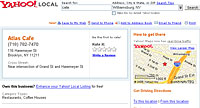 Using search engines has become the second most popular activity for Web users, according to new research from the Pew Internet & American Life Project.
Using search engines has become the second most popular activity for Web users, according to new research from the Pew Internet & American Life Project.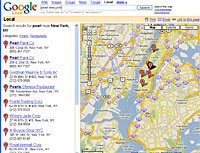 ‘Gen X’ surfers (29-40 year olds, not the Billy Idol-fronted band) were online the most (51 per cent), followed by ‘Gen Y’ users (18-28 year olds), ‘Older Baby Boomers’ (51-59 yrs old), ‘Younger Baby Boomers’ (41-50), ‘Matures’ (60-69) and, finally ‘After work’ (70+). We wonder who makes up these daft categories?
‘Gen X’ surfers (29-40 year olds, not the Billy Idol-fronted band) were online the most (51 per cent), followed by ‘Gen Y’ users (18-28 year olds), ‘Older Baby Boomers’ (51-59 yrs old), ‘Younger Baby Boomers’ (41-50), ‘Matures’ (60-69) and, finally ‘After work’ (70+). We wonder who makes up these daft categories? The Internet was supposed to herald in an age of paperless offices, online browsing and tree-untroubling electronic mail, but it seems that when it comes to flogging goods, the trusty old print catalogue still rules the roost.
The Internet was supposed to herald in an age of paperless offices, online browsing and tree-untroubling electronic mail, but it seems that when it comes to flogging goods, the trusty old print catalogue still rules the roost. The survey found that old fashioned catalogues remain one of the most effective promotional channels for generating online orders, with 60% of survey respondents currently licking stamps on catalogues and brochures to be sent to customers in an attempt to increase online sales.
The survey found that old fashioned catalogues remain one of the most effective promotional channels for generating online orders, with 60% of survey respondents currently licking stamps on catalogues and brochures to be sent to customers in an attempt to increase online sales. Additionally, the survey revealed that 55% of retailers planned to follow the annoying trend set by High Street stores and “extend” the Christmas buying period by encouraging consumers to buy earlier (If only we could “extend” the Christmas holiday period too).
Additionally, the survey revealed that 55% of retailers planned to follow the annoying trend set by High Street stores and “extend” the Christmas buying period by encouraging consumers to buy earlier (If only we could “extend” the Christmas holiday period too). Around 80% of consumers are expected to buy at least a quarter of their Christmas purchases online this year – up a mighty 15% over last year.
Around 80% of consumers are expected to buy at least a quarter of their Christmas purchases online this year – up a mighty 15% over last year. Nielsen, the top American agency that measures TV viewing audiences, is going to provide ratings that take account of time-shifted viewing through digital recording devices like TiVos even though viewers are able to, and in my experience, generally do, fast-forward through the paid for messages.
Nielsen, the top American agency that measures TV viewing audiences, is going to provide ratings that take account of time-shifted viewing through digital recording devices like TiVos even though viewers are able to, and in my experience, generally do, fast-forward through the paid for messages.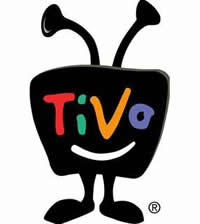 The US networks say that time-shifted ratings should be taken into account, and point out that PVR users watch more TV – which we don’t dispute. They watch around 5.7 hours and that’s more than 10% extra when compared with the technologically-disadvantaged standard household. Their logic follows that this extra 10% of viewing, gives them more opportunity to see commercials. With PVR penetration in the USA already around 8% of the TV universe and expected to rise steadily over the coming years, this adds up to a is significant amount for media buyers.
The US networks say that time-shifted ratings should be taken into account, and point out that PVR users watch more TV – which we don’t dispute. They watch around 5.7 hours and that’s more than 10% extra when compared with the technologically-disadvantaged standard household. Their logic follows that this extra 10% of viewing, gives them more opportunity to see commercials. With PVR penetration in the USA already around 8% of the TV universe and expected to rise steadily over the coming years, this adds up to a is significant amount for media buyers. Convergence took a step forward Friday past as Cisco announced the takeover of Scientific Atlanta (SA). The price? $6.9 billion cash.
Convergence took a step forward Friday past as Cisco announced the takeover of Scientific Atlanta (SA). The price? $6.9 billion cash. The acquisition looks a good fit though, Cisco are keen to push their IPTV proposition, SA’s strength in the US set-top-box market (they have around 40% market share) will allow them to capitalise on the access to the home that video brings. The companies’ combined news release majors on this, John Chambers, president and chief executive officer of Cisco Systems said “Video is emerging as the key strategic application in the service provider triple play bundle of consumer entertainment, communication and online services.”
The acquisition looks a good fit though, Cisco are keen to push their IPTV proposition, SA’s strength in the US set-top-box market (they have around 40% market share) will allow them to capitalise on the access to the home that video brings. The companies’ combined news release majors on this, John Chambers, president and chief executive officer of Cisco Systems said “Video is emerging as the key strategic application in the service provider triple play bundle of consumer entertainment, communication and online services.” Formed in 1951, SA has long been a market leader in Cable TV, has a healthy balance sheet and already has one large IPTV customer in the shape of SBC Communications. The critical mass of SA as part of Cisco should help it win more.
Formed in 1951, SA has long been a market leader in Cable TV, has a healthy balance sheet and already has one large IPTV customer in the shape of SBC Communications. The critical mass of SA as part of Cisco should help it win more.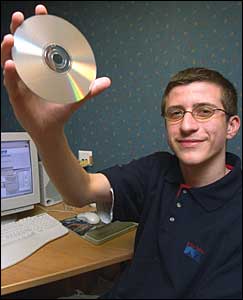 Because Criminals Make the Best Police Officers
Because Criminals Make the Best Police Officers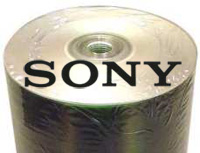 The other law other are saying have been broken by SonyBMG, and this is one that could land them in BIG legal difficulties, is
The other law other are saying have been broken by SonyBMG, and this is one that could land them in BIG legal difficulties, is 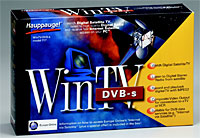 Hauppauge Digital have whipped out a new add-on card to convert a boring old PC into a multimedia-tastic satellite TV receiver.
Hauppauge Digital have whipped out a new add-on card to convert a boring old PC into a multimedia-tastic satellite TV receiver.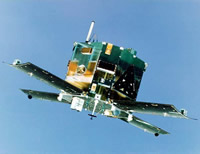 Freesat will be the satellite equivalent of Freeview,” said Yehia Oweiss, Managing Director of Hauppauge Digital. “Already broadcasting BBC, the service will be available to all UK households and bring free digital TV to the 25 per cent who are outside Freeview’s area. Consumers can buy our Freesat tuner now and enjoy many digital channels now, with more being added all the time.”
Freesat will be the satellite equivalent of Freeview,” said Yehia Oweiss, Managing Director of Hauppauge Digital. “Already broadcasting BBC, the service will be available to all UK households and bring free digital TV to the 25 per cent who are outside Freeview’s area. Consumers can buy our Freesat tuner now and enjoy many digital channels now, with more being added all the time.” Of interest to the media and communications industries will be the final report of the Martin Cave led
Of interest to the media and communications industries will be the final report of the Martin Cave led  The
The 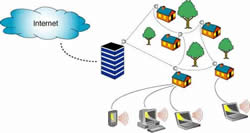 Mesh Networks are going to grow enormously by the end of the decade, according to ABI research. This ‘revalation’ is following years technical-types raving on about them.
Mesh Networks are going to grow enormously by the end of the decade, according to ABI research. This ‘revalation’ is following years technical-types raving on about them. There’s a Trust Issue Here
There’s a Trust Issue Here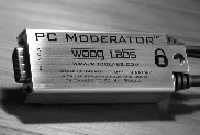 A company called Woog Labs (yes, really) have
A company called Woog Labs (yes, really) have